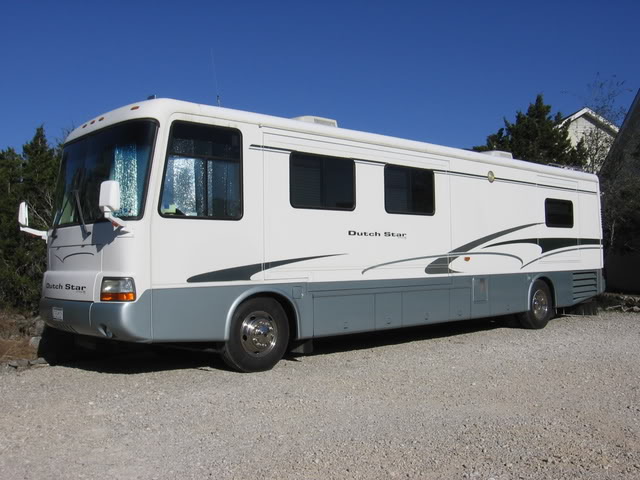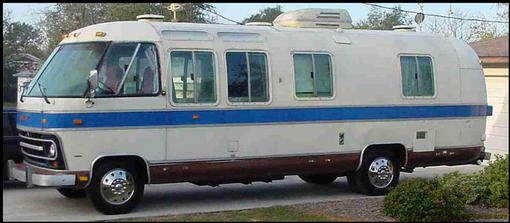Yeow. I have been to Hawaii on vacation many times (more than 20) so I have some idea of why there are few (if any) RVs there. First off, the climate is such that shelter is not really a consideration -- a blanket and pillow is probably overkill. (Yes, I have been "caught" in the rain -- once thought I would drown -- but if you live there that is more a schedulling problem than anything else.) The other thing I noticed about Hawaii was all the State and Federal parks lock the gates at 5:00 (or some such early hour). I don't know if they lock you in or out but it doesn't feel right. Above all is the thought that an island is an island and "getting away from it all" seems like an impossible quest since everything is so close.
I think the main reason that Hawaii doesn't have an RV market is that there's not enough population for the RV demographic to support the niche industry. I don't know who'd pay the shipping fees from the Mainland, the $3-$4/gallon gas, and the fact that you can only drive about 30 miles in a "straight" line. RV dealers (and their repair shops) would quickly starve around here. Since there's few weather issues, just throw a tent in the back of the sedan (and a longboard on the roof) and go.
The only time I see RVs in Hawaii is for movie/TV shoots. The production crew probably find it easier to move/park/equip/inhabit an RV than a Matson container. When Disney came to town to film "Pearl Harbor", at least four of the stars shipped over their own custom-fitted RVs and parked them on Ford Island (the location of most of the filming). They had all the familiar comforts of their homes, including security, and could walk to work within minutes. It seemed like a better deal than spending thousands of dollars to convert a couple of government classrooms to furnish Bruckheimer's offices, and then donating all of the furnishings & office equipment to [-]our chiefs[/-] Goodwill.
One of the issues with Hawaii's parks is the homeless population. If you're only holding down a subsistence job but you can throw a tent in the car to go elsewhere on a moment's notice, then why even bother to try to pay rent on an overpriced & undersized apartment? The state has only found one way to deal with the chronically homeless-- to close the parks after sundown and to limit the length of camping permits.
Closure also tends to limit the late-night beach partying & noisemaking while making it easier for the security patrols. But as Trombone Al has pointed out before, classic camping is dead. Even in Hawaii, most of the kama`aina can't be without their generators, their lights, their high-volume audio systems... the only camping I've enjoyed around here is in the Boy Scout/Girl Scout campgrounds where such noise is discouraged.
What is that saying? "Another lousy day in paradise." If you have a permanent (grounded) house, how could you possibly top that with a mobile one?
The expression we usually hear is "All y'all are from Hawayuh an' yer vacationin'
hee-yer?!?"
The fact is that "getting away from it all" only takes about an hour on Oahu to go from "town" to "country", and doing so means that you don't sit around your abode looking at unwashed dishes, unfinished chores, in-progress projects, unanswered mail... you get the idea. Surfing happens a lot quicker, too, when you're living next to the beach.
When we visit our kid at college graduation, wherever that is, we're going to try to rent an RV and park it on the grounds. Beats the heck out of the crowded town lodgings and the campus traffic jams.








